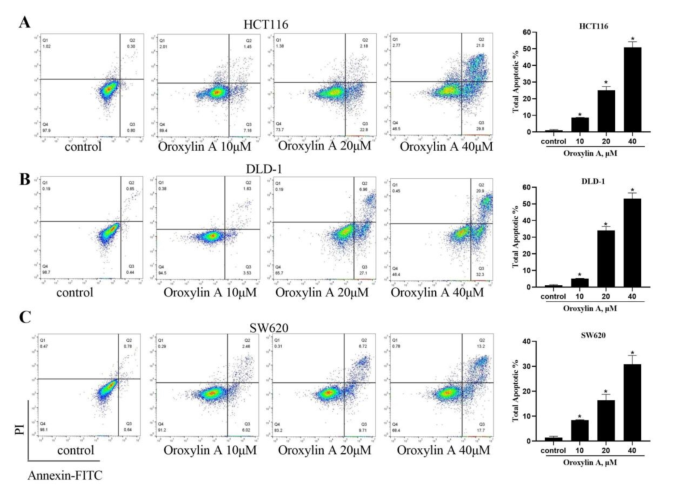Researchers have discovered a promising natural compound, Oroxylin A, that can effectively suppress the spread of colorectal cancer by targeting a key cellular pathway. This finding could lead to new treatment strategies for this deadly disease. Colorectal cancer is the third most common type of cancer worldwide, and metastasis remains a major challenge in its treatment. The study, published in Scientific Reports, sheds light on how Oroxylin A can inhibit the epithelial-mesenchymal transition (EMT) process, a crucial step in cancer metastasis, by targeting the TGF-β/SMAD signaling pathway.

Stopping Cancer in Its Tracks
Colorectal cancer is a serious and often deadly disease, with metastasis being a major factor in its poor prognosis. When cancer cells spread to other organs, the chances of survival drop dramatically. That’s why finding new ways to prevent and control metastasis is crucial for improving outcomes for patients with colorectal cancer.
Unlocking the Power of a Natural Compound
In this study, researchers focused on a natural compound called Oroxylin A, which is extracted from the traditional Chinese medicinal plant Scutellaria baicalensis Georgi. They investigated the effects of Oroxylin A on the metastasis of human colorectal cancer cells, both in laboratory experiments and in animal models.
Inhibiting the EMT Process
The researchers found that Oroxylin A effectively suppressed the proliferation, migration, and invasion of colorectal cancer cells. Importantly, they discovered that Oroxylin A was able to inhibit the process of epithelial-mesenchymal transition (EMT), which is a crucial step in cancer metastasis. EMT is a process where epithelial cells, which are tightly connected, lose their polarity and transform into more mobile, mesenchymal-like cells.
Targeting the TGF-β/SMAD Pathway
The researchers further investigated the mechanism by which Oroxylin A inhibits EMT and metastasis. They found that Oroxylin A targets the TGF-β/SMAD signaling pathway, which is a key regulator of EMT. Oroxylin A was able to bind to TGF-β receptors and inhibit the activation of the SMAD signaling cascade, ultimately suppressing the EMT process and preventing the migration and invasion of colorectal cancer cells.

Promising Results in Animal Models
To validate their findings, the researchers conducted experiments using animal models of colorectal cancer. They found that Oroxylin A significantly inhibited tumor growth and reduced the expression of the proliferation marker Ki-67 in the tumor tissues. Additionally, Oroxylin A treatment did not cause any obvious toxicity to the liver or intestines, suggesting that it could be a safe and effective therapeutic option.
Implications for Colorectal Cancer Treatment
The discovery of Oroxylin A’s ability to suppress colorectal cancer metastasis by targeting the TGF-β/SMAD signaling pathway opens up new possibilities for the development of novel treatment strategies. By inhibiting the crucial EMT process, Oroxylin A could be a promising candidate for improving the survival and quality of life for patients with metastatic colorectal cancer.
Further research is needed to fully understand the potential of Oroxylin A and to explore its clinical applications. However, this study provides a valuable insight into the use of natural compounds as effective and targeted therapies for this devastating disease.
Author credit: This article is based on research by Ji-Ping Cao, Yang Yan, Xin-Shuai Li, Long-Xun Zhu, Rui-Kun Hu, Pan-Feng Feng.
For More Related Articles Click Here
